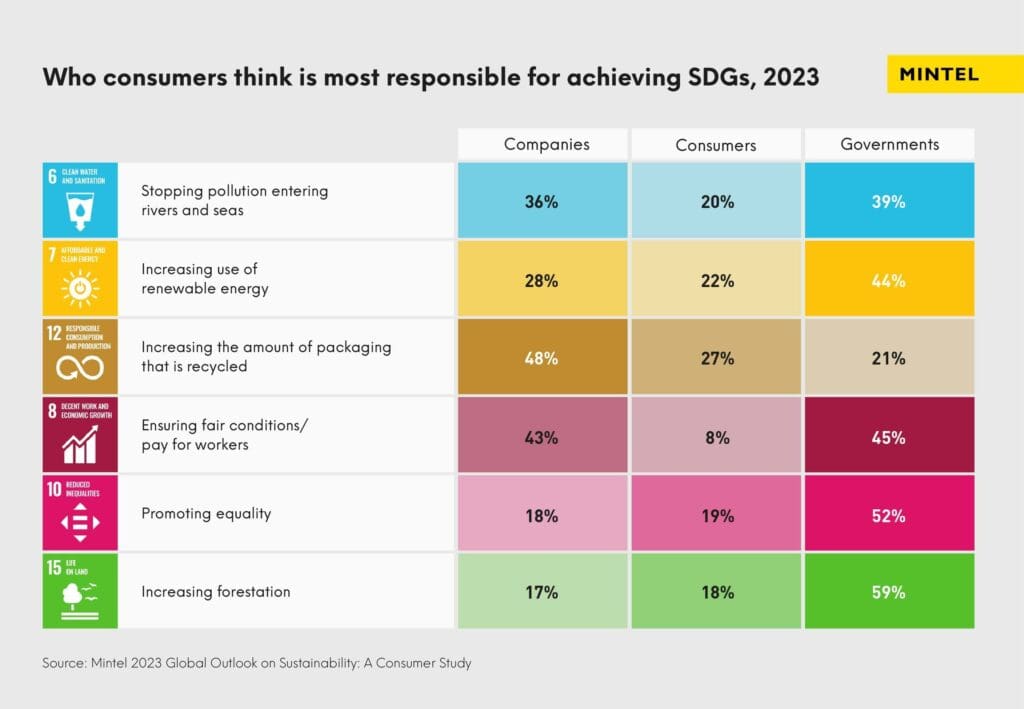In this series, Global Outlook on Sustainability author Richard Cope explores how Mintel’s sustainability research relates to government issues, business issues, the sustainability roles and responsibilities of consumer-facing brands, and current popular culture.
‘We the people’: Eco-litigation in the US and beyond
Let’s take a look at how the mobilisation and momentum around climate change litigation are creating an emerging compliance issue for consumer-facing businesses.
Earlier this month, sixteen young plaintiffs, aged 5-to-22, took to the US legal system to challenge the state of Montana’s fossil fuel-friendly policies on the basis that they contravene the state’s constitution and its commitment to “maintain and improve a clean and healthful environment in Montana for present and future generations”.
This is not an isolated case. We’re seeing a new generation of legal professionals who are starting to hold governments and businesses accountable to their electorates, shareholders, employees and customers on environmental grounds.
ClientEarth, for example, is a global team of lawyers seeking to ensure governments and companies are held accountable for damages and for upholding the Paris Agreements. The organization has successfully closed Poland’s Belchatów coal-fired power station because it contravened the owner’s obligation, according to Polish law, to take care of the public interest and public health.
Source: ClientEarth_ via Instagram
These are the latest episodes in an ongoing global legal drama that signposts how the line between corporate and governmental responsibility is blurring, whilst both parties are being challenged to do right by their respective customers, shareholders and electorates.
Data from Mintel’s Global Outlook on Sustainability report illustrates this point at a global level (see chart). Digging deeper into the US data, we see that growing numbers of Americans believe the government is most responsible for reducing the use of fossil fuels for energy (36%, up three points in the last 12 months), whilst 35% say companies are most responsible for increasing renewable energy usage. The fact that similar proportions agree that eco-activism is “a legitimate form of protest” and that it “has raised my awareness of environmental issues” suggests how burgeoning awareness will grow the eco-litigation trend.

Compliance and avoiding punitive costs are classic components amongst the key arguments in the business case for companies to transition towards sustainability. However, it seems that companies have the most to fear. After all, initiatives like The Carbon Disclosure Project’s (CDP) Carbon Majors Database have revealed that, since 1988, just 50 companies have been responsible for three-quarters of greenhouse gas emissions from oil and gas.
Companies are about to find out that their responsibilities will no longer be confined to their shareholders and their levels of contentment but to a broader community of stakeholders who are impacted by those products and policies.
Mintel’s ‘Global Outlook on Sustainability: A Consumer Study’ was developed to help businesses lead effective change that resonates with and inspires consumers. The report tracks the environmental and social priorities, purchase behaviours, and levels of understanding of and engagement in sustainability topics among consumers from 16 countries. With the ever-increasing conversation around climate change and environmental concerns, now’s the time to get informed. Take advantage of this opportunity to focus your business goals on sustainability and improve your brand’s future viability and buy the report today.








